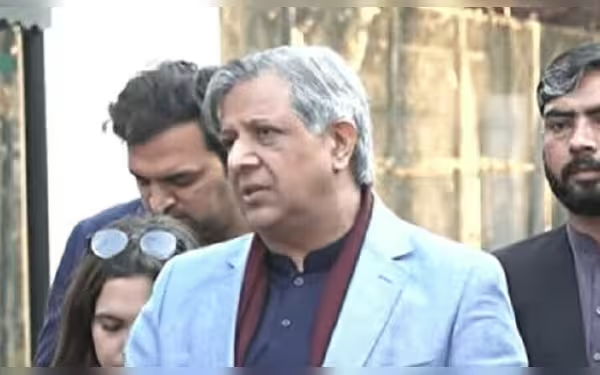Saturday, November 16, 2024 05:38 PM
Law Minister Addresses Lawyers' Concerns Over Constitutional Amendments
- Lawyers express concerns over constitutional amendment transparency.
- Basic structure doctrine vital for democracy in Pakistan.
- Call for inclusive dialogue with legal community emphasized.
 Image Credits: dawn.com
Image Credits: dawn.comLaw Minister Azam Nazeer Tarar addresses lawyers' concerns over constitutional amendments and emphasizes the need for transparency and dialogue.
The recent discussions surrounding constitutional amendments in Pakistan have sparked significant concern among the legal community. The Pakistan Bar Council (PBC), along with various bar councils and associations from Punjab, Sindh, Khyber Pakhtunkhwa, and Balochistan, have expressed their unanimous agreement on the parliament's authority to enact constitutional amendments. However, they have raised serious reservations regarding any alterations that may affect the basic structure of the Constitution.
During a convention organized by the Supreme Court Bar Association (SCBA), which saw the participation of elected leaders from the legal fraternity, Law Minister Azam Nazeer Tarar was present to address these concerns. The gathering culminated in a declaration that highlighted the legal professionals' apprehensions about the legislative process currently being pursued. The lawyers criticized the lack of transparency and the secrecy surrounding the proposed amendments, emphasizing the need for a more inclusive dialogue with all stakeholders involved.
Legal experts argue that any changes to the Constitution should not be taken lightly, as they could have far-reaching implications for the rule of law and the rights of citizens. The basic structure doctrine, which protects the fundamental framework of the Constitution, is a cornerstone of Pakistan's legal system. Therefore, any amendments that threaten this structure could undermine the very foundation of democracy in the country.
In light of these developments, it is crucial for the government to engage in open discussions with legal representatives and the public. Transparency in the legislative process is essential to foster trust and ensure that the voices of all stakeholders are heard. The legal community's concerns should not be dismissed, as they play a vital role in upholding justice and the rule of law in Pakistan.
As the situation unfolds, it remains to be seen how the government will respond to these reservations. The legal fraternity's call for meaningful dialogue is a reminder that constitutional amendments should not be a unilateral decision but rather a collective effort that reflects the will of the people. In a democratic society, it is imperative that all voices are considered, ensuring that any changes made to the Constitution are in the best interest of the nation.













